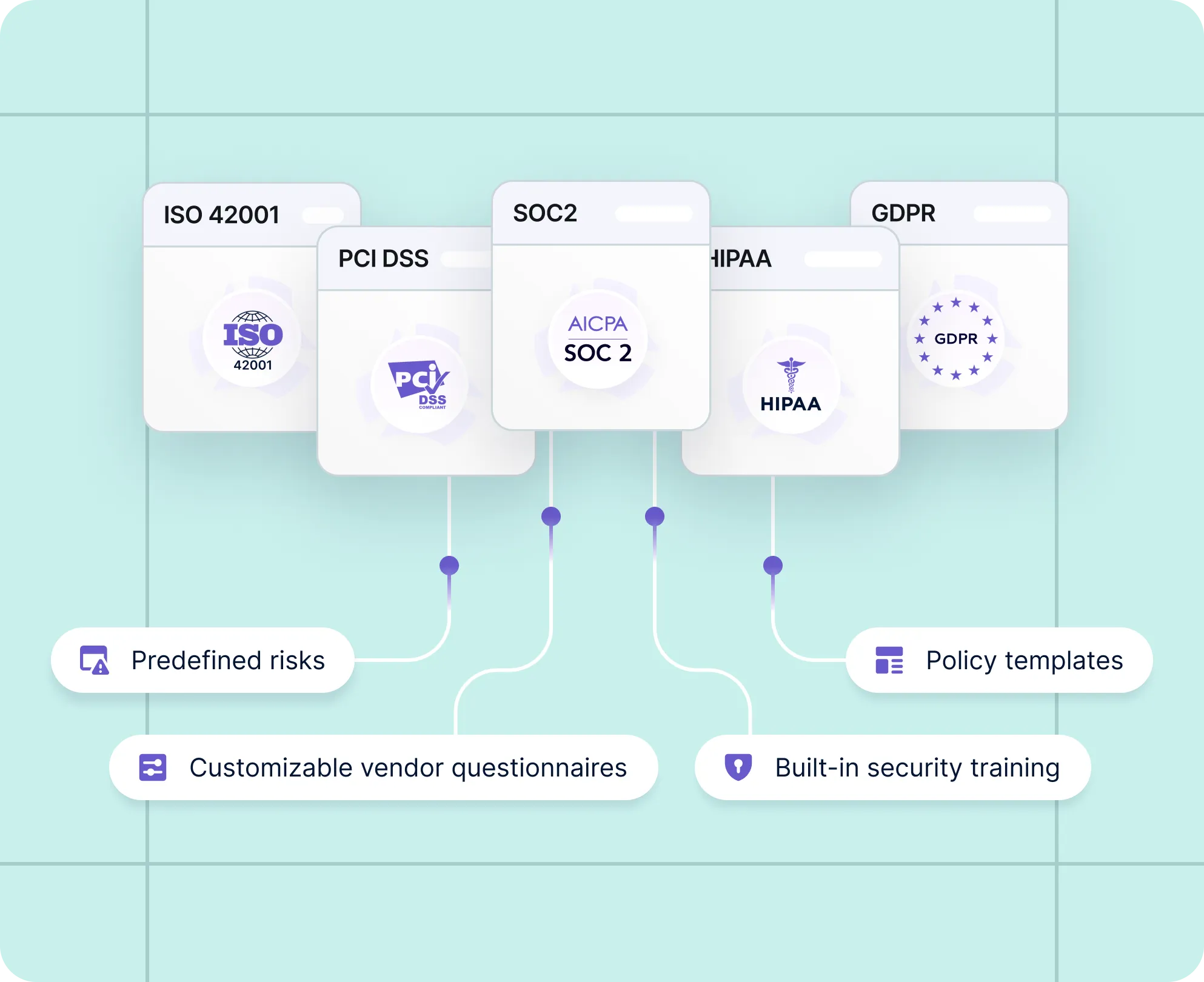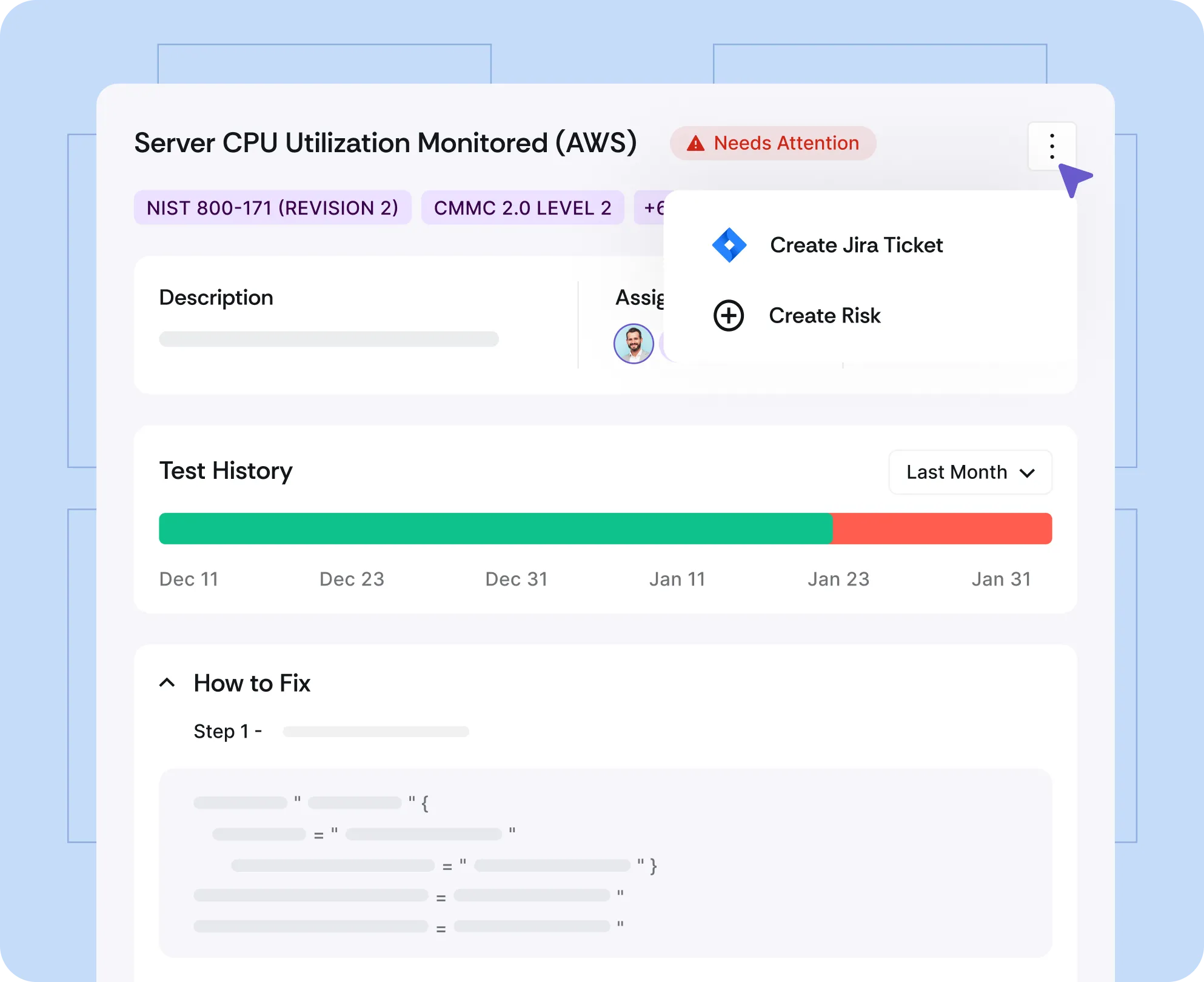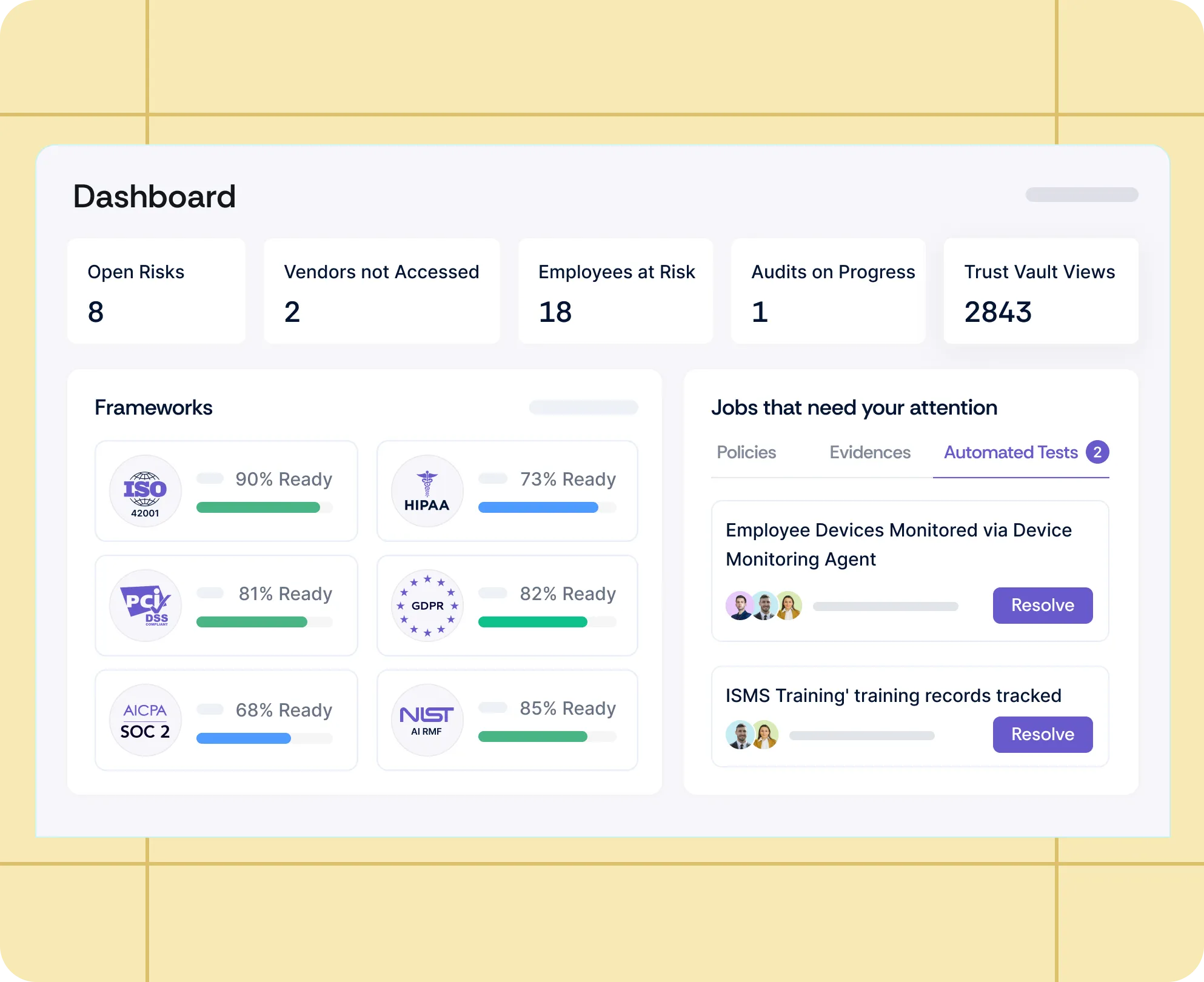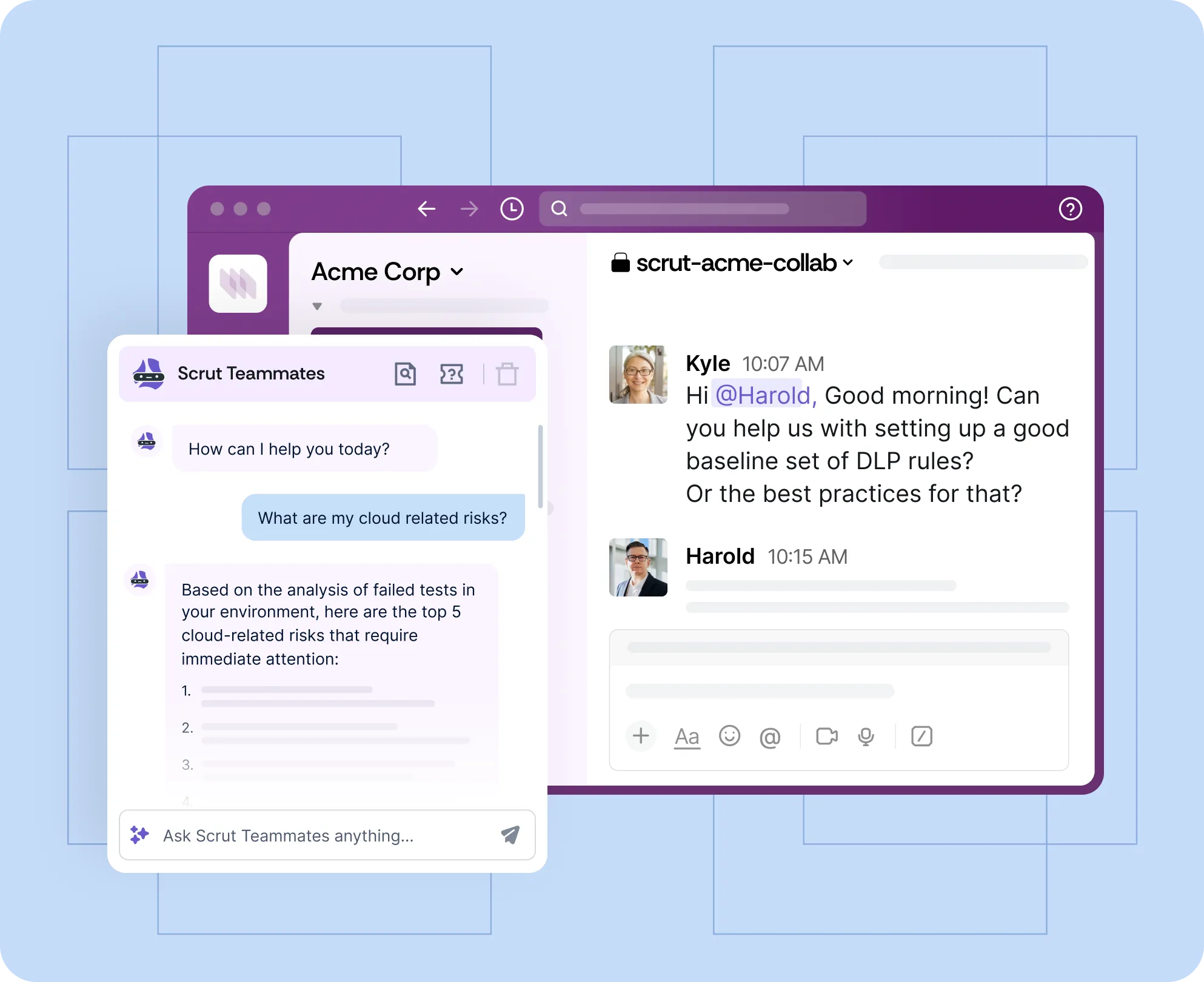
Scrut made audits simple—with clear explanations, organized controls, and seamless integration into our workflows. Even support went beyond hours.
Our platform automates PCI DSS certification processes and continuously monitors compliance, making Scrut the leading choice for achieving PCI compliance.





























Scrut made audits simple—with clear explanations, organized controls, and seamless integration into our workflows. Even support went beyond hours.



Scrut helped our company navigate the complexities of SOC 2, ISO 27001, HIPAA, GDPR, CCPA, and PCI compliance with ease.
.webp)


Identify compliance gaps quickly and efficiently

Monitor your PCI DSS compliance status in real time

Ensure your service providers maintain PCI DSS compliance

Assess and mitigate risks related to payment card data security

Regular updates to align with the latest PCI DSS standards
Plug Scrut into your tech stack with easy integrations

Lean back as Scrut's automated tests collect majority of the evidences

Quickly address gaps and deploy controls with our content libraries

Enjoy continuous control monitoring and 24/7 audit readiness
PCI DSS applies to any enterprise that accepts, shares, or stores any cardholder data, regardless of size or number of transactions.
PCI DSS was developed in retort to the increasing number of data breaches involving payment cards. It protects organizations and their customers against payment card fraud and theft.
PCI DSS is a data security standard designed to protect cardholder data Any company that processes, stores, or shares credit card data must comply with PCI DSS. In contrast, ISO 27001 provides a framework for that provides Information Security Management System (ISMS)
Control objectives and compliance requirements under the PCI DSS are legally enforceable. While not required by law, the Payment Card Security Standards Council has the authority to instruct companies to follow PCI standards if they want to handle credit card transactions and to revoke that access if a company fails to meet the standards’ requirements.
Yes. PCI DSS compliance is required for all businesses that store, process, or transmit payment cardholder data.
Yes. Using a third-party company alone does not exempt a company from PCI DSS compliance. It may reduce their risk exposure and, as a result, the effort required to validate compliance. However, this does not allow them to disregard the PCI DSS.
At their discretion, payment brands may fine an acquiring bank $5,000 to $100,000 per month for PCI compliance violations. The banks will pass this fine on to the merchant and end your relationship or raise transaction fees.
PCI data includes cardholder personal data such as Name, Account number, Card expiration date, CVV or CVC, and authentication data, such as the magnetic stripe, chip, and pin data.
Step 1: Determine your PCI level.
Step 2: Complete a self-assessment questionnaire or have a QSA evaluate you.
Step 3: Build and strengthen an IT security program with Scrut Automation to protect cardholder personal data and meet the guidelines specified in the PCI control objectives.
STEP 4: Apply for a formal report with the PCI Security Standards Council
PCI DSS is an annual certification. But you are required to maintain the security of your environment throughout the year to achieve ongoing certification.
For smaller organizations at levels 2 to 4, PCI DSS compliance costs between $10,000 to $20,000. Whereas for large enterprises, PCI DSS compliance costs between $70,000 to $100,000.
Even if your organization only accepts one payment card annually, it must follow the Payment Card Industry Data Security Standard (PCI DSS).
Imagine what happens when you don’t have time to read 1,800+ pages of documentation to figure out which of PCI DSS’s 300+ security controls apply to your company or when you don’t have the funds to hire consultants to become PCI compliant? Scrut Automation comes in! We streamline the PCI DSS compliance process, allowing you to focus on operations and sales.